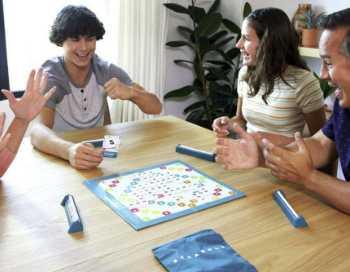Learning a new language can be both fun and effective when you include word games like Scrabble in your study routine. These types of games challenge your vocabulary, spelling, and strategic thinking in a relaxed and engaging way. Whether you’re a beginner or an advanced learner, here’s how to use Scrabble and similar games to boost your language skills.
1. Expand Vocabulary Naturally
Scrabble encourages you to discover and use new words. As you play, you’ll come across unfamiliar terms, which you can look up and learn in context. Make a habit of writing down new words and practicing them later in sentences.
2. Practice Spelling and Word Construction
Spelling correctly is essential in many languages. Scrabble helps you pay attention to letter placement and word formation. It reinforces correct spelling through repetition and playful competition.
3. Use Themed Word Lists
To focus on specific vocabulary, try themed Scrabble games using categories like food, travel, or nature. This method makes it easier to remember related words and strengthens topic-based understanding.
4. Play with a Dictionary Handy
Using a bilingual dictionary during or after the game helps reinforce learning. Check words you don’t recognize and write brief definitions or translations to keep a record of new vocabulary.
5. Play Online or with Apps
There are digital versions of Scrabble and similar word games in many languages. Playing online lets you challenge native speakers or other learners. Many apps also include hints and definitions, which aid learning as you go.
6. Encourage Group Play and Discussion
When playing with friends or classmates, pause to talk about unfamiliar words or interesting strategies. Group play encourages social learning, where you can learn from each other and explore cultural contexts of certain words.
7. Track New Words After Each Game
Keep a word journal where you write down all the new terms you learned from a game. Try using each in a sentence or short paragraph to reinforce understanding and memory.
8. Adapt Rules for Learning Goals
Customize the game by adjusting rules. For example, allow bonus points for using newly learned vocabulary or only play using verbs or adjectives. This makes the game more focused and educational.
Conclusion
Games like Scrabble are more than entertainment—they’re valuable tools in language learning. By combining fun with vocabulary practice, spelling reinforcement, and social interaction, you create a dynamic and effective study experience. With just a little planning, word games can become a regular and enjoyable part of your learning journey.


